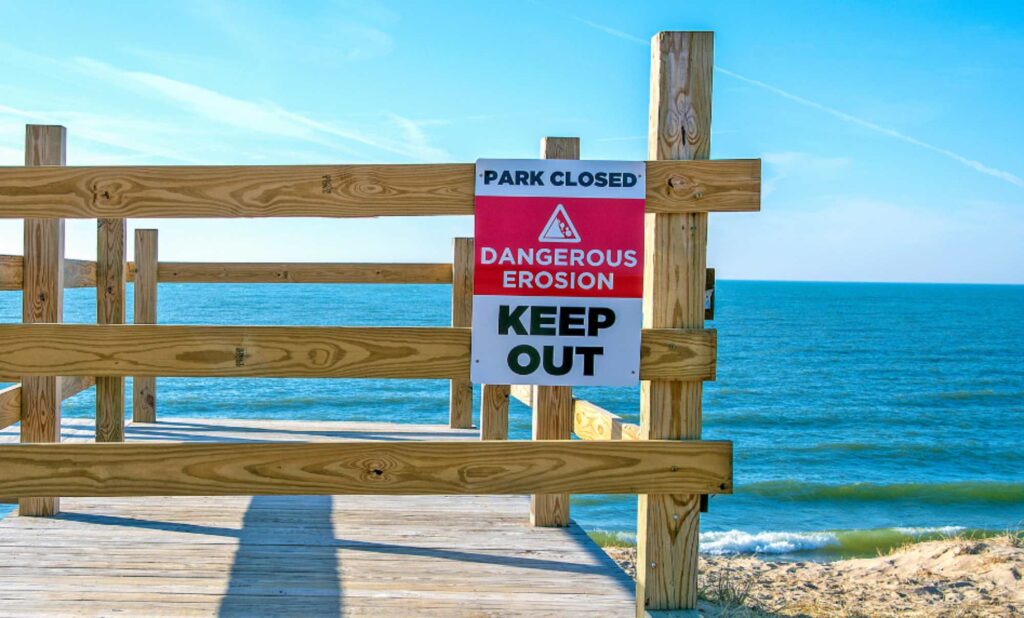There are inherent risks with everything we do and everywhere we go. From simply walking down the street, driving down the road, or swimming in the ocean. Some are riskier than others.
When to Inform Guests About Potential Dangers
For the most part, we are aware of the risks we may be taking or the dangers that may be lurking, but as vacation rental hosts, when are these risks and dangers worthy of letting your guests know about. How do you let them know and what responsibilities do you have to do so?
People don’t usually think about the dangers they could possibly encounter on a vacation and are so focused on the excitement of being on vacation and heading to a new destination that they may not think about issues that you may take for granted.
I live in the Texas Hill Country where some of these dangers include rattlesnakes, cottonmouths, and coral snakes. All of which can kill. It doesn’t happen often, but I encourage my clients to add language to their lease agreement that snakes may be around the area and they can be deadly.
Is a Warning Enough? Exploring Host Responsibilities
Is that enough of a warning? Should they do more? Should hosts assume that everyone knows there could be snakes lurking in the undergrowth or along the edge of a river?
I had a client whose guest experience includes walking the hiking trails through the woods on their property. Should they be more proactive and include information in their guest book about the importance of wearing hiking boots while hiking and exploring because of snakes?
Recently I traveled to the Alabama Gulf Coast for a week. It was my first time east of Galveston and I loved the beautiful white sandy beaches and blue water.
As I walked the beach, I noticed many holes in the sand. Deep holes that had been dug by happy kids and families enjoying a day at the beach. If I had taken my kids when they were young, I would have happily watched and even helped as they dug a hole in the sand too. (But would have covered them before I left so as not to harm the nesting sea turtles)
While I was there, I read about two teens who were killed when the hole they were digging caved in on them. The mother and father stated that they had watched their kids dig the hole and had no idea this could happen.
And, even though it doesn’t happen often, it does happen to several families each year – much more often than shark bites, which is what keeps me worried when I go to the beach.
When I shared this information with others, I found that many of my friends and colleagues in that area and on the East Coast knew it was an issue. As a new visitor to the area, I had no idea. And most of my friends and family here in Texas and in the Western United States had not heard of this either.
And that got me thinking. Should hosts take more proactive measures to let guests know of these risks? Should my host have warned me in some way that digging holes in the sand could be very dangerous?
Evaluating the Need for Guest Warnings
Are there inherent risks and dangers associated with your destination that you may want to warn your guests about? Something that you assume everyone knows already?
When you think about the guest experience and your hospitality, I would argue that excellent hospitality and a great experience include making sure people are safe.
Creating a Safety Information List
Make a list of some of the dangers that you are aware of in your area and decide if any of these dangers are worthy of sharing extra information with your guests.
You should also share information about how guests can sign up for reverse text alerts from local authorities if that is available in your area.
Methods to Inform Guests About Risks
You can inform your guests in several different ways:
- Create a separate email in your guest welcome series
- Add a warnings and safety section to your Touchstay guide
- Write a blog post on your website and share a QR Code link on the refrigerator
- Add a page to the beginning of your physical guest book
- Text them when they arrive, “Hey, by the way, there’s a riptide right now, be sure to read the section in my guest book about rip tides if you aren’t familiar with them.”
If you are hesitant to do this or think that it’s not your responsibility, think about it from the guest’s point of view. How much would they appreciate being told about these things? Informing them of some of the specific risks they could encounter while on a vacation in your area could be one of the aspects of your hospitality that guests appreciate the most.
I know I would.






